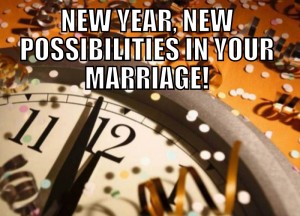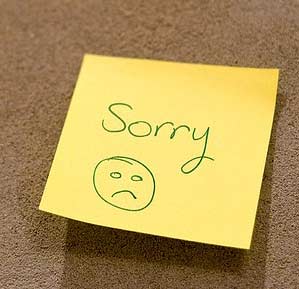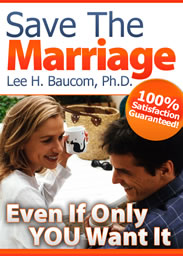What’s Normal In A Marriage?
https://savethemarriage.com/stmblog/wp-content/themes/corpus/images/empty/thumbnail.jpg 150 150 Lee H. Baucom, Ph.D. Lee H. Baucom, Ph.D. https://secure.gravatar.com/avatar/669b7e375d93f77521ddaba08adb8063?s=96&d=blank&r=pgRecently, a survey on sexual behavior in marriage was completed. The results of that study are going to be part of a new book released next month, The Normal Bar. I have no doubt, given the press, content, and media of this book, it will be a best seller.
We will all rush out, read through, and immediately start judging, “am I normal?” That is, isn’t it, the way we look at ourselves. We want a yardstick. We want a measurement of what is normal.
And that is the way we were raised. How did you fair in the race? Where you the fastest, slowest, or in between? How were your grades? Better than your friends, the same, or worse?
Later, how is your salary? Retirement savings? Health statistics? All based on an idea of a norm.
And many times, the norm can help us understand where we are. If I should have X dollars saved for retirement, and my peers have done that, it is some incentive to get busy.
But there are other areas where “the norm” does little to move us. Relationships tend to be one of those areas. And I, for one, am looking forward to seeing what the authors of The Normal Bar have to say.
In my years of being a therapist, I have had people who are married and have not had sex for decades. Others tell me they have sex every single day (more on weekends!). In other words, there is a wide continuum of sex frequency, not to mention sex variety.
So, as we look to the book for some “normalizing” of intimacy, we may want to remind ourselves that “norm” is not the same as “expected” or “acceptable, ” or even “OK.” It may, however, become the basis of a conversation about what two people want and need from the relationship.
New Years Resolutions To Save Your Marriage
https://savethemarriage.com/stmblog/wp-content/themes/corpus/images/empty/thumbnail.jpg 150 150 Lee H. Baucom, Ph.D. Lee H. Baucom, Ph.D. https://secure.gravatar.com/avatar/669b7e375d93f77521ddaba08adb8063?s=96&d=blank&r=pgThe New Year. A tim e for reflecting and resolving. A time to let go of what has been and look toward what could be.
e for reflecting and resolving. A time to let go of what has been and look toward what could be.
My rational mind knows that in reality, it is just another day. But my deeper soul sees something more profound.
And so, each year, I spend a good bit of the last part of the year in reflection of what has happened in the last year. I look at the good and the bad.
But I don’t stop there. I look forward to what potentials there are in the new year. What could become? What could develop? What turns can I help my life make?
My family has a tradition of picking a single word. That word represents what we want to live into. It is a word that sums up our coming year as an overall theme.
One year, I knew it was going to be busy and that my energy would be pulled in many directions. That year, I chose “breathe.” I used that as a reminder to settle down, to be present, and to let the stress fall away.
That word appeared at the top of every day on my calendar that year. And I practiced breathing, both metaphorically and physically.
My word this year remains a secret. I will reveal it to my wife and children, but to nobody else — at least until I know I am living into it!
Let me encourage you to ponder your word for the year. One single word. It will represent what you are moving into.
That may be as much “resolving” as you wish to do. But many want to have some specific resolutions, so I have a few suggestions. These are suggestions for resolutions if you are struggling with your marriage. They are powerful resolutions, though, that can be applied anywhere, in any life.
5 Resolutions to Help You Save Your Marriage
1) Resolve to be growth-oriented. See yourself as someone who is always in the process of becoming. You are not static, unable to change. You are not the “old dog,” unable to learn new tricks!
You are always growing and developing. Resolve to notice it, embrace it, and pursue it.
Take up new hobbies and pursuits. Become the better person you know you have hidden within you. Challenge yourself to be on a path of improvement and betterment.
In her book, Mindset, Carol Dweck states that we can either have a growth mindset or a fixed mindset. She notes that many of us have a fixed mindset in many areas of our lives. We come to believe we cannot change, cannot learn, and that things are “just the way they are.”
That belief is fiction.
A growth mindset is the realization that you can grow and improve in any area in your life — if you choose to!
That does not mean you can be anything you want to be, but that you can be better at anything in which you want to improve.
Oh, and with relationships, when we say our relationship is stuck and cannot change, we have adopted a fixed mindset. When we say the same about our spouse, we have placed them in a fixed mindset.
When, instead, we look for areas to learn and grow, the world opens before us. New potentials appear.
Resolve to be oriented toward growth!
2) Resolve to be expansive. I believe we can either live contractively (based in fear) or expansively (based in possibility). Be expansive.
That does not mean you will stop experiencing fear. Only that you will choose to not be steered by fear. You will not allow fear to constrict and contract your life.
Living expansively is not “living large” or “having a big head.” In fact, people do both of those when they are living constrictive lives. They are fearful of what others will think, so they compensate. They give into the fear of “what others may think.” They end up living lives that are reflections of what they only think others are thinking.
In other words, they reflect the false belief that people are watching and that what they see matters.
When we live expansively, suddenly we find new options and new creativity. When we live expansively, the world sees our potentiality and begins to move with us, not against us.
Does that mean that life will suddenly be trouble-free? No. Only that we will not be adding to our own troubles.
In marriage, when we begin to be fearful of the reactions and/or rejections of our spouse, we live contractively. When we are expansive, we are looking for more connection.
When we are living contractively, we are asking “what am I getting from this marriage?” When we are living expansively, we are asking “how can I put more into this marriage? How can I love my spouse more?”
Resolve to live more expansively!
3) Resolve to show up. Woody Allen said “Eighty percent of success is showing up.” I think we underestimate what that means. Showing up, really showing up, is being truly present. It means bringing your own greatness into the moment. (And yes, we all have greatness!)
Think of the difference between just being there and really showing up. Think of the times when people are around you, but you are only partly there. You are half-listening, looking at Facebook or texts on your phone. You are looking through the mail or at the newspaper when your spouse or children are talking to you.
Showing up is when you are talking WITH them. You are engaged and listening. You are not either pretending to listen or waiting for your turn to respond. You are engaged.
When you are showing up, you are truly engaged in the moment and with others.
What happened to a Facebook “friend” or in the newspaper is very hollow, compared to what happened to those that are with you and who love you.
A marriage in trouble often has two people who no longer really even show up with the spouse. They are there, but not truly THERE.
So resolve to show up MORE in life this year!
4) Resolve to take full responsibility. Notice that I said “responsibility,” not “blame.” Looking for blame is fairly useless and mostly unproductive. But taking responsibility for life. That is major. Life changing.
If you are in a building that is on fire, if you stand around and ask, “who did this? Who caused this fire?,” you are not likely to survive. If, however, you say “I am taking full responsibility to get myself and anyone else I can out of here,” then the situation has drastically changed.
We live in a culture that is caught up in saying, “Not me. I didn’t do this. Someone else needs to fix it.” We are surrounded by “It’s not my fault,” which then becomes “It’s not my responsibility.” Look no further than Washington, DC, for proof of this.
Taking responsibility is about accepting that you have a role in making life better. That no matter what has happened, you can determine where you end up.
Resolve to not blame yourself, but to take full responsibility for where your life leads!
5) Resolve to forgive and let go. Anne Lamott said “Not forgiving is like drinking rat poison and then waiting for the rat to die.” And yet, we often decide to hold onto all that old baggage. We decide to carry it around, regardless of what it does for us.
I truly believe that forgiveness is almost entirely for the benefit of the forgiver.
When I speak about forgiveness, I start having people list “unforgiveables.” These are things for which someone should simply not be forgiven. Often, the list includes things done to innocent children, but also includes murder and other grisly crimes.
I then point out that such an approach assumes the forgiveness is for the offender, not the forgiver.
It is too bad we have been infected by this belief. Because I think this is what leads us to hold onto past hurts and perceived slights. We decide to hold onto the pains and hurts, so the other person is not “let off the hook.” So instead, we just drag around the pain and memories.
What happens next? We start to blame. Then we stop showing up. Then we start living contractively. And then we stop growing.
In other words, to do the other 4 resolutions, you also have to resolve to forgive. Not for a single event, but as a belief in life.
Trust that forgiveness will release you and don’t worry that it might let the other person off the hook. In reality, it just gets you off the hook.
Oh, and notice how many marriages are in trouble because people simply will not forget. They commit to holding onto the hurts and slights that are a side-effect of living with another person in such intimacy.
Resolve to forgive more this year!
My hope for you this New Year is that you will find more and more of life in your life. You will find more and more connections in your connections.
I wish you a grand New Year!
If you haven’t already, I invite you to grab my Save The Marriage System by CLICKING HERE.
The World IS Going To End. . .
https://savethemarriage.com/stmblog/wp-content/themes/corpus/images/empty/thumbnail.jpg 150 150 Lee H. Baucom, Ph.D. Lee H. Baucom, Ph.D. https://secure.gravatar.com/avatar/669b7e375d93f77521ddaba08adb8063?s=96&d=blank&r=pg. . . but NOT on December 21st. 
Forget the Mayan calendar. It is just the next in a long line of predictions about when the world will end, and what signs we are noticing.
In fact, if scientists are correct, the earth will be here for a few more billion years. We may leave it in tatters, but the earth will be here.
People may be optional, depending on what we do with our planet.
So, yes, the world is ending at some point. Just not right now.
OK, so a few may be saying, “how does he know that the world is not going to end?” Well, if I want to make a bet, I am going that way. Those that predict the world will end on a particular date have to live it down the day after that date. But when I say the world will NOT end, if I am wrong, nobody can point that out. So, I am pretty safe on this one!
Now, before you breathe some sigh of relief when the sun comes up on December 22nd, let me suggest we think for just a moment: What if this was our last week or last day of life.
What would you do? How would you spend that small amount of precious time in the world? Who would you want to see? What would you want to do? What things are left unsaid? What amount of forgiveness needs to be asked or granted?
We live our lives as if there is plenty of time left, as if there is always a tomorrow. Yet while the world will not end on December 21, the fact is that we do not, individually, know how long we have.
I would suggest that, perhaps, we need to look toward living a life of intention. We might just sit down and make a list of all the things we need to do and say, all the people we need to see, call, and love, and get busy living a life with no regrets!
Just a thought.
Secrets To Save Your Marriage
https://savethemarriage.com/stmblog/wp-content/themes/corpus/images/empty/thumbnail.jpg 150 150 Lee H. Baucom, Ph.D. Lee H. Baucom, Ph.D. https://secure.gravatar.com/avatar/669b7e375d93f77521ddaba08adb8063?s=96&d=blank&r=pg As you may suspect, after a quarter century of working with couples, I have some opinions on what it takes to save your marriage. In this article, I want to take a look at some of the research and offer some opinion, from my experience, on what works and what doesn’t.
As you may suspect, after a quarter century of working with couples, I have some opinions on what it takes to save your marriage. In this article, I want to take a look at some of the research and offer some opinion, from my experience, on what works and what doesn’t.
Let me start by saying there is one major distinction between marriages that are saved and marriages that end: ALL of the marriages that are saved have someone who took action.
Just for clarity and disclaimer information — I am not under the delusion that every marriage can be saved. But I do believe that many more marriages could survive and flourish, if given the chance.
But often, a spouse doesn’t want divorce, but doesn’t know what to do. So, the spouse starts on a process of education. He or she reads, listens, watches, and learns. . . and then does nothing to change the relationship. Knowledge is only power when it is applied.
Then there are those that find lots of information — and some of it is conflicting. So they start in one direction, then read something else and start in another direction, then hear something and head off in another direction. Instead of doing nothing, they do everything!
The person who does nothing is showing the spouse that he or she doesn’t care — even though that is completely untrue. Certainly not a sentiment you would want to portray.
The person who does everything appears inconsistent and manic. Often, this becomes proof to the spouse that things really are bad — and their spouse is erratic. Imagine, for instance, that one piece of advice says to be warm and welcoming. You do that for a couple of weeks. Things don’t change, so you read about trying to make your spouse jealous and make them feel your absence, so you reverse your actions 180 degrees. Don’t you think your spouse will be thoroughly confused?
So let me suggest you find the best advice possible, something that agrees with your gut, and then stick with it, applying it to the best of your abilities!
Which brings me to secret #1: Be consistent in your approach — and be sure the approach is not being passive!
How to Save Your Marriage
It is my advice that you NOT work on making your spouse jealous. I have seen that advice all over the internet. And let me tell you a secret: NONE of that was written by a qualified professional.
It was written to make someone feel better on taking out their anger on a spouse. That part of you that is hurt and angry? In some ways, we want to hear about how the best action is to go have fun, to “teach them a lesson.”
But the lesson it teaches? “I have moved on.” That, I would suggest, is not a winning strategy for showing “I love you and want our marriage to work.”
Which leads me to secret #2: People who save their marriage set aside their momentary feelings for a greater good. Because there are going to be times when your hurt leads you to want to lash out. You will WANT to give up. But if your mind is committed to saving your marriage, don’t let your emotions pull you off-course.
My wife uses the phrase, “consult your plan, not your feelings.” In other words, once you have formulated a plan, then stick with it, even when your feelings are telling you differently.
Watch this video for some more help on this:
Save Your Marriage
Your secret #3? Assume you WILL save your marriage. In other words, instead of always questioning what is possible, just decide you will do exactly that: save your marriage.
I teach SCUBA diving in the local area, and my partner in teaching starts out our first class with one request from participants: PMA. Positive Mental Attitude. In class, we ask the students to stretch themselves. After all, it is not second-nature for us to breathe under water. And some of the exercises requires the student to get beyond the fear. Not to get rid of the fear, but get beyond the fear.
So we ask participants to refuse to play the “I can’t” tapes in their mind, and choose instead to say “I can.” It is incredible to me to watch people talk themselves through an exercise by using that phrase over and over.
It is the same in dealing with a crisis. I get letter after letter from people asking “can I save my marriage?” I only want two changes. First, I want someone to say “I CAN save my marriage.” Then, I want the person to ask “how can I save my marriage?” Suddenly, a shift has happened.
Tips to Save Your Marriage
At this point, you have hopefully made some shifts in your thinking. Now you know it is possible to save your marriage. But you may need some nudges on where to go from here.
 Secret #4: Saving a marriage is about a) reconnecting and b) working on yourself. Both are required.
Secret #4: Saving a marriage is about a) reconnecting and b) working on yourself. Both are required.
Marriages get into trouble because there is too little connection in the marriage to sustain it. A lack of connection leads to what John Gottman refers to as the 4 Horsemen Of The Apocalypse.
These “Horsemen” are traits of communication that arise between distressed spouses. Here they are:
1) Criticism – One or both begin to be overly critical and attacking about perceived shortcomings. Forgiveness begins to wane.
2) Contempt – Then arises the sense of contempt that one or both holds for the other. Contempt is marked by only seeing the worst in the other and becoming suspicious about every action from the other.
3) Defensiveness – The contempt is felt and experienced as attack, which leads to a defensive reaction. And when we are defensive, we have a very difficult time seeing our own role in the process
4) Stonewalling – The defensiveness leads to the final marker. When we realize we cannot talk something out, we choose not to interact. We stonewall, refusing to communicate to the other.
Click Here for a video of Gottman discussing this.
To be clear, most marriages have, at some point, elements of these “4 horsemen.” But the more distressed a relationship becomes, the more consistent these patterns become, until the patterns are engrained and automatic.
Which calls for the process of reconnecting. As marriages reconnect, there is less and less of the pattern. And self-improvement allows for one to acknowledge a truth of being human: we all have room to grow and improve. We all have places where we have allowed our more fearful brains to take over and hold us hostage.
Time to reconnect and time to grow!
Ways to Save Your Marriage
Let me provide a little insight on how to start the process with a video I created:
There are a couple of important details. First, notice I do not suggest you sit down and have a “heart-to-heart” with your spouse. It will fail. You will not talk your spouse out of feeling that the marriage is in trouble.
But more than that, when you are talking about the relationship, you are no longer relating. And when you are not relating, you are not connecting. So, give up on that big relationship talk you have been rehearsing in your mind.
Second, don’t panic. Resist begging, demanding, guilting, or any other negative display of emotion. You don’t have to appear cheerful. Being sad is fine, but large expressions of emotion generally only prove the point to your spouse: they need to get away. So resist. Stay calm.
Stop Your Divorce
That, in my mind, is only step one. Stopping the legal process is the beginning point to building a marriage that you treasure — that both of you treasure! When you get to that point, then your marriage is sustainable for the long-term. More than that, it will be nurturing to both of you. And both of you will protect it.
If you are ready to really create a plan, to really get serious about marriage, I invite you to grab my Save The Marriage System. You CAN save your marriage, even if you are the only one wanting to right now!
Showing Up. REALLY Showing Up!
https://savethemarriage.com/stmblog/wp-content/themes/corpus/images/empty/thumbnail.jpg 150 150 Lee H. Baucom, Ph.D. Lee H. Baucom, Ph.D. https://secure.gravatar.com/avatar/669b7e375d93f77521ddaba08adb8063?s=96&d=blank&r=pgMy travels are finally over for a bit. Another trip to California for more personal/professional development. I spend a good bit of my time trying to stay at the top of my game, and with the latest developments in this arena.
I have now been back for 4 days, and my brain is clearing from the time change. I still wake up in the middle of the night, but it is getting better.
Good thing, too, since I just launched a new virtual magazine, Thriveology Magazine. If you have an iPad, give it a look!
But there is another reason it is a good thing my brain, mind, and body are just about in the same time zone. That reason is because in my personal and professional life, I really strive to be right there, right in the moment.
How often do we just go through the motions. You know what I mean? We sit in front of the computer (or tablet or phone or TV), lost in the media. We check our email, check our texts, follow the links, change the station, toss back some chips. . . and suddenly, hours have passed.
 In other words, while our body is there, we have yet to show up!
In other words, while our body is there, we have yet to show up!
At the last conference, Brendon Burchard really pushed us on this one. He challenged us all to Show UP! This means to fully be ourselves, to be present, to really bring our greatness to the world.
Now, before that word, “greatness,” throws you off, let’s talk.
I truly believe we all have greatness within us.
That doesn’t mean we are always showing the world our greatness. Only that it is really in there. (Some of us cover it up very well!)
Your greatness is what others love in you. It is what your spouse came to love within you. And that is the problem. When marriages get into trouble, it is usually true that one or both have quit showing up.
Oh, sure, you may both be in the same room. But that is not the same as showing up. Showing up is about being present, of showing yourself, of focusing on the other.
What would that look like for you? How can you show up? How can you show up MORE? (And we can ALWAYS show up more!)
When your spouse is talking, do you focus on your spouse? Do you listen, showing your interest?
And if you are not interested, why are you not interested?
Quick answer: if you are not interested any longer in what your spouse is sharing, you have disconnected a part of yourself. You have stopped showing up.
Reconnect with that part of yourself and you will reconnect with your spouse. Guaranteed.
If you have an inner voice shouting, “why can’t my spouse SHOW UP?”, demand that voice go away. You have no control on how your spouse is showing up. But you do have control over how YOU show up. So SHOW UP!
Marriages are saved by our connection, or reconnection, with our better selves. When we demand of ourselves to show up, to be present, we bring ourselves to the relationship in a new way. And guess what? That new way is much more inviting, much more attractive.
And guess what? Life is ALWAYS better when we truly SHOW UP!
Presence, Presents, Present — Lessons From Vegas
https://savethemarriage.com/stmblog/wp-content/themes/corpus/images/empty/thumbnail.jpg 150 150 Lee H. Baucom, Ph.D. Lee H. Baucom, Ph.D. https://secure.gravatar.com/avatar/669b7e375d93f77521ddaba08adb8063?s=96&d=blank&r=pgJust after midnight last night, my plane touched down after a long flight from Las Vegas. I finished up 4 days in Vegas, capped by the too long, too late flight — and a body that was still trying to figure out time zones!
So, yes, I had a great time in Vegas. And no, I did not win. Didn’t lose, either. Gambling isn’t much my thing. At least not in a game, where I am pretty sure the house will win.
Which may raise the question of why I was in Vegas. And by my own observations, that is a fair question to ask. I was certainly surrounded by opportunity to donate to the house!
But I was there for a conference. There to learn. And learn, I did. It was an excellent conference with many opportunities to learn. The conference was designed to help authors, but was much more than that. It was a mix of self-development, encouragement, and practical advice for experienced and aspiring authors. Excellent stuff that kept me wide awake.
Which is the beginning of my point here. As design would have it, I had to pass through the casino numerous times throughout the day. Restaurants were around the edge of the casino, and when I realized I left my socks at home (long story), I had to walk right through the casino to get to the street and to a store.
During the conference, I was surrounded by wide-awake, wide-eyed, involved and present people. We were all taking notes and listening, engaged in the presenters’ words.
 Then, I would walk out of the conference and through the casino. And there, I noticed something very different. Throughout the casino were people seated at the slot machines, hitting buttons and pulling levers. One hand held a drink, another held a cigarette. And both hands ran the machine. That was amazing enough, but the look on the faces. . . that was terrifying.
Then, I would walk out of the conference and through the casino. And there, I noticed something very different. Throughout the casino were people seated at the slot machines, hitting buttons and pulling levers. One hand held a drink, another held a cigarette. And both hands ran the machine. That was amazing enough, but the look on the faces. . . that was terrifying.
People were able to drink, smoke and gamble, all with a completely distant look. They were spending money, taking in a number of substances, all under the guise of having a good time. But as far as I could tell, they were so disconnected, they were not even present. Their body was there, but their mind was elsewhere.
Which is where I get to the point here. One group of entirely engaged and present people. Another group of distracted, disengaged people who were “having a good time.”
It got me thinking: how often do we really “show up” when we are with our spouse? And how often are we there, physically, but our mind has gone elsewhere?
Guess what? Your spouse knows it. Your spouse knows when you have numbed out and have left the scene. And there we have the beginnings of a marriage crisis. Disconnect is when we stop connecting, stop being present.
The post is Presence, Presents and Present. Let me suggest that it may be a great present to those you love to focus on giving your presence, in the present. Our presence means we are truly engaged, truly in the moment. We are listening, learning, and engaging. And we are in the present moment. Not thinking about tough times from the past, or worrying about what is coming. Not engaging in other activities that keep us disconnected, while pretending to be there. It is focusing and truly showing up.
My challenge to you: give the present of your presence to those you love. You may just learn something in the process!
Anatomy of an Apology
https://savethemarriage.com/stmblog/wp-content/themes/corpus/images/empty/thumbnail.jpg 150 150 Lee H. Baucom, Ph.D. Lee H. Baucom, Ph.D. https://secure.gravatar.com/avatar/669b7e375d93f77521ddaba08adb8063?s=96&d=blank&r=pg
(Yes, professionals do still have disagreements. And yes, sometimes we also make the mistake of texting it!)
The whole argument started innocently enough (they always do!). It was simply a misunderstanding. I thought one thing was decided, and my friend thought another. His family acted on what they thought, while my family acted on what we thought.
We only discovered the distance we had traveled apart when an innocent text came to me. I noted in the reply text about what my family was doing, and it went downhill from there.
I have many bad traits and places of growth. One piece of me, for good or bad, that goes back well into my childhood, is I am stubborn. Very stubborn. “Won’t budge” stubborn.
At times, it serves me well. At other times, not so well. In this situation, I am still trying to decide!
So, as I held my point — and in my thinking, only stating facts as I knew them, my friend grew more frustrated. Later, he made some statements that I found rather hurtful. So, I finally excused myself from the conversation — which led to a couple more barbs thrown my way (at least in my interpretation of the events).
I pointed this out the next day, and got an “apology”. . . that felt very hollow.
Which has left me thinking about apologies. What makes a good apology? What makes a bad apology? What difference does it make?
What difference?
Apologies are the social lubricant of relational recovery. When a relationship is bruised or ruptured, a sincere apology can lead people back into a relationship. Sometimes, even to a stronger relationship.
I find apologies to often be the beginning point of a whole new relationship. It can revive a flagging relationship and preserve a battered relationship.
But a poor apology can do more damage than good. It can serve to reinforce an opinion that the other person does not care, or is not taking responsibility. It can leave the “injured” feeling hollow, sometimes not even sure why.
After all, the other person will say, “I said I am sorry.”
So what makes a bad apology?
To me, this one seems to be subtle but clear.
An apology that is bad either does not apologize for an action or excuses the person.
Take, for example, if I hurt someone’s feelings and say “I am sorry your feelings were hurt.” That is not apologizing for what you might have done to hurt the feelings.
The “sorry” is for the fact the other person feels a certain way, not that the event happened.
If I say, “I am sorry if you heard it that way,” that is a bit closer. It does address that they might have heard it a certain way, but it still puts it onto them. In other words, they need to hear it differently.
Now, just to be clear, these ARE apologies! They are “I am sorry. . . .” But they are only apologies of interpretation. Not apologies for actions.
An apology of “I am sorry I said that, but blah, blah, blah” is the next bad apology. It makes an excuse of why you did what you did. “I am sorry I said that, but you made me mad” makes it the other person’s fault that you reacted in a negative way.
People want to be understood. And people do so by “explaining” why they did what they did.
But over the years, I have discovered that the difference between an explanation and an excuse is whether you are saying it or hearing it.
Explanations will be heard as excuses. Every time. Even if the explanation is true.
An apology that ends with “but blah, blah, blah” will be heard as “I am not apologizing. I am excusing myself.”
So what makes a good apology?
A good apology requires taking responsibility for an action. With no excuse. Just saying “I am sorry that I said _____ / I did ______.”
Isn’t it interesting that the simple approach is often the best?
But notice, you are claiming that you are feeling sorry. If you are not really sorry, then don’t pretend. That will feel hollow.
With a little reflection, you are likely discover that you did not want to do harm to your loved one. That leads to that feeling of remorse that lets you know you really are sorry for your actions. It is no longer about defending interpretation.
Even if, like me, you are stubborn and resist admitting that you may have erred.
I am NOT saying that there are times when an action is misinterpreted. But a misinterpreted word or action tells you there are multiple interpretations.
So, you may actually then add clarification. Not excuse, but clarification.
For example: “I am sorry that I said ____. I know that hurt your feelings, and I feel bad about that. What I really meant was ________.”
It is certainly possible that, at that point, the clarification will not be heard. In fact, you may decide you simply need to apologize. Then wait for another time to be more clear in your thoughts.
NOTE: This does NOT mean you must always apologize! There may be times when what you said or did, even if hurtful, was exactly what you meant to say or do. That is when we often put out the “I am sorry your feelings were hurt”-type of apology.
That may be as far as you are willing to go. But let’s just be clear about that: this is not a deeply felt apology. It is an attempt to move forward without a change in behavior.
So, you want to be sure that is what you TRULY believe. After letting your own feelings/ego/stubbornness die down, if you still believe you have nothing for which to apologize, you may find you need to stand behind your word or action.
I am good with someone choosing that. What I am NOT good with is when folks stumble through an apology, being less-than-clear out of their own need to excuse themselves and their actions. I am NOT good with a weak apology that does nothing to heal the relationship, even though the apologizer does feel remorse.
Apologies are all about ceding ego and admitting to a mistake. They are about taking responsibility for an action or word that caused pain.
Wait. That can be shortened. They are about taking responsibility. No excuse and no manipulation.
Save Your Marriage — Immediate Help
https://savethemarriage.com/stmblog/wp-content/themes/corpus/images/empty/thumbnail.jpg 150 150 Lee H. Baucom, Ph.D. Lee H. Baucom, Ph.D. https://secure.gravatar.com/avatar/669b7e375d93f77521ddaba08adb8063?s=96&d=blank&r=pg Many people ask me how to “save marriage.” I will be honest. Saving your marriage is going to be tough. It will also be entirely worth it.
Many people ask me how to “save marriage.” I will be honest. Saving your marriage is going to be tough. It will also be entirely worth it.
Problem is, there is a great deal of save marriage misinformation on the internet. So, I want to give you a quick head-start on the process.
I created a video on saving a marriage. So let me ask you to just take a few moments to view the material. It will give you immediate save marriage help. CLICK HERE FOR SAVE MARRIAGE VIDEO
Are You Looking for Immediate Login and Access to Save The Marriage?
https://savethemarriage.com/stmblog/wp-content/themes/corpus/images/empty/thumbnail.jpg 150 150 Lee H. Baucom, Ph.D. Lee H. Baucom, Ph.D. https://secure.gravatar.com/avatar/669b7e375d93f77521ddaba08adb8063?s=96&d=blank&r=pg
We have more information on that by CLICKING HERE.
